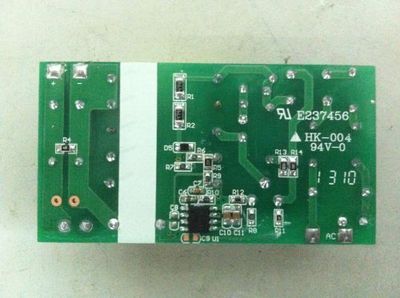想知道自己适合做什么最糟糕的方式就是不断去尝试不同的事物。这就好像跟每个你觉得略有好感的人都date来看看他们适不适合你。这不仅会花掉你很多的时间和精力,你也很有可能最后感到非常不满和沮丧。
很多这种采取“试一试”型的人会被公司打上频繁跳槽的标签。他们看上去也不是很成熟,不够了解自己。做事随机,角度单一。对于好的公司来说,他们并不够吸引人。
然而,有很多人不需要一一尝试就可以找到什么行业,什么工作最适合他们。这并不只是运气。他们能找到适合自己的事情是通过问自己这两个基本问题。第一个关于内因,第二个则是关于外因。
问题一:你喜欢做什么?无论别人问我什么工作或者事业我认为TA应该去追求,这都是我反问他们的第一个问题。为了发现你做什么事能够充满动力,做得很好,首先,想一想你喜欢做的工作类型。
比如,是分析问题解决问题吗?和别人一起工作?支持或者帮助别人?是创造、建立、销售、计划、组织、协调、或者传递事情?大多数的工作都是围绕着几个基本的任务。所以你应该要想明白的第一件事是你喜欢做的工作的本质。
如何找到这个问题的答案:
即使你没有很多工作经验,想一想你在学校或者生活中那些让你最兴奋的事情。可能是一个你曾经做过志愿者活动的学校项目或活动。或者是某一个你解决了难题的时刻,或者当你在帮助别人的时候。这些事情里,究竟是什么让你觉得非常享受呢?
举个例子,尽管我有10年时间都在做机械工程,但是我并不享受。当我最后终于开始考虑我自己的兴趣所在时,我意识到我对着死物一点动力都没有,我对一整天对着电脑没有兴趣。
相反地,我自己感到当我直接和人交流,输出我的价值观时我更专注。每次当我在帮助我的朋友的时候我都会有这种感觉。或者每当我在中学和大学里参与到帮助别人的活动中,我都有这种感觉。这些情况让我兴奋,也激发出我最好的一面。
问题2:这个工作/职责/行业到底是什么样儿的?
有许多人对于一个工作或者行业到底是什么样儿的这个问题抱着非常简单甚至是肤浅的想法。这就是为什么他们在工作岗位上做了一段时间之后,才意识到这和他们当初想的完全不一样。
但是,这种事情本来是不必发生的。举例来说,当我意识到我想要和人一起工作并且帮助他们后,我辞掉了我工程师的工作并申请了法律学校。对于律师的工作,我想得很理想。他们与非正义斗争并为美好的事情奋斗。他们在法庭上充满激情地维护着贫困的人和弱势群体。
在等着进法律学校的时候,我和一些律师也聊聊天。当他们向我描述他们的工作时,我发现那和我原来想的不一样。他们一个人地坐在法律图书馆研究案例。他们无聊地浏览和编辑冗长的法律文件和合同。他们甚至很少上法庭。幸运的是,我在进入法律学校之前就知道了这些。所以,我没去法学院,相反地,我去了商学院。
如何能找到这个问题的答案:
现在,找到答案没那么困难。你有互联网,搜索引擎,和社交媒体。但我也推荐一些老方法。去和正好处在你考虑追求的工作岗位上的人聊聊。这儿有一些你可以问他们的一些好问题:
你的日常工作看起来是怎样的?
你最喜欢你的工作的哪一点?
你最讨厌你的工作的哪一点?
你发现你的工作有什么挑战?
要做好你的工作需要哪些素质和技能?
在未来几年你觉得你的职业发展会如何?
当我问那些律师这些问题的时候,没有一个给我很积极的回答。他们挣得不少,但似乎没有一个真正喜欢自己的工作。
如果你是一个大学生,你可以找一个短期的实习工作。实习是体验一个工作和行业是什么的理想环境。体验一个环境并且做几天工作能够帮助你了解这是不是你感兴趣加入并且未来会继续做下去。
顺便说一下,如果你的目标是事业上要超过一般人,那么另一个你要回答的根本问题是,你特别擅长的是什么事情?换句话说,你真正的天赋是什么?举例来说,虽然我知道自己拥有做工程工作的分析技能,但我知道有很多人可以做得比我好得多。
当我深入思考自己的真正的特长时,我发现答案是我的人际交往能力。尽管我很害羞,但我是一个讨人喜欢的人。我关心他人的幸福,我是一个很好的倾听者,并且能对他人的感觉有直觉性的感知。最终,是我的人际能力帮我做某一件事做到最好。
再说一次,你可以通过思考你出色完成的事情或比大多数人做的好的事情来识别你真正的优势。举例来说,在大学时,我朋友当时叫我Larry叔叔,因为其他人都会来找我帮忙或寻求建议。此外,别人总是找我来担任领导的角色。尽管我对他们没有兴趣,其他人信任我并且觉得我了解他们的兴趣。这些是我真正优势所在的早期迹象。
尝试所有你似乎感兴趣的事情是浪费时间并且成本极高的。当然,你可以不去体验就知道一个工作和行业是否适合你。这只需要一些自我了解和对真实世界的理解。通过回答这些基本问题,你会避免浪费时间和精力去走那些你很快会发现自己并不会走的路。
(译)
------------------------------------------------------
The worst approach to finding out what kind of jobyou may like is to keep trying different ones. That would be like dating everyone you’re somewhat attracted to in orderto see if they’re a good fit for you. That will not only take a lot of your time and energy, you’re alsolikely to end up feeling dissatisfied and frustrated.
Many who take such a “give it a try” approach also getlabeled as a job hopper by employers. They’re not seen as very mature or self-aware. They approach things randomly and from aone-sided point-of-view. That’s not avery attractive person to leading companies.
However, there are many who are able to figure out whatkind of job and industry can best suit them, without trying them all. They’re not just lucky. They do this by finding the answers to twobasic questions. The first one relatesto a key internal factor. The second onerelates to a key external factor.
Question #1: Whatdo you enjoy doing? Whenever someoneasks me what kind of job or career I think he should pursue, this is thequestion I always ask them in return. Todetermine what kind of job you’ll be motivated to do well, start by thinkingabout and identifying the type of work you enjoy doing.
For instance, is it analyzing things and solvingproblems? Is it working withothers? Is it supporting or helpingothers? Is it creating, building,selling, planning, organizing, coordinating, or delivering things? Most jobs are oriented around such basictasks. So the first thing you want todetermine is the nature of work you enjoy most.
How you find the answer to this question:
Even if you may not have much work experience, thinkabout the things you’ve done in school or in your life that have excited youthe most. Perhaps it was a schoolproject or activity you volunteered for. Or it was a time when you were able to solve a difficult problem, orwhen you were helping someone else. Whatwas it exactly that you enjoyed when doing these things?
For instance, although I spent 10 years as a mechanicalengineer, I didn’t really enjoy it. WhenI finally began thinking about what I really liked doing, I realized that Iwasn’t motivated by objects. I wasn’tinterested in looking at a computer all day.
Instead, I felt much more engaged when working directlywith people and providing my value to others. I felt this way whenever I would help friends with their problems. Or whenever I got involved in an activity inhigh school and college that helped others. These were situations that turned me on and brought out the best in me.
Question #2: What is this job/function/industry reallyabout?
Many people have avery simple, superficial idea about what a job or industry is about. That’s why after doing it for a while, theyrealize that it’s nothing like what they thought it would be.
This doesn’t have to happen though. For instance, after realizing I wanted towork with and help people, I quit my engineering job and applied to lawschool. I had an idealistic idea aboutwhat lawyers did. They battled injusticeand fought to do what was good. Theypassionately defended the poor and weak in the courtroom.
While waiting to attend law school, I spoke to a fewlawyers. When they described their jobs,it was not like what I imagined. Theysat alone in law libraries researching cases. They tediously reviewed and edited long legal documents andcontracts. Rarely did they ever enter acourtroom. Fortunately, I found this outbefore I went to law school. I went tobusiness school instead.
How you find the answer to this question:
These days, it’s not that difficult. You have the internet, search engines, andsocial media. But I also recommend theold fashion way. Go out and talk topeople who do what you’re thinking of pursuing and doing too. Some good questions to ask them include:
What doesyour day-to-day job look like?
What doyou like most about your job?
What doyou like least about your job?
What doyou find challenging about it?
Whatskills and qualities are most important to do your job well?
Where doyou see yourself going in a few years?
When I asked these questions to the lawyers I spoke with,none had very positive things to say. They made a good living, but nobody seemed to like what they did.
If you’re a university student, you can also pursue briefinternships. Internships are idealsituations for getting a taste of what a job or industry is about. Experiencing an environment and doingsomething for even a few days can help you know if it’s something you’d beinterested in being a part of and doing further.
Btw, if above average career success is your goal,another fundamental question you want to answer is, what are you very good at? In other words, what are your true talents? For example, while I had the analyticalskills to do engineering work, I knew deep down that many others could do whatI did much better than me.
When thinking more deeply about my true strengths, Irealized that they were my people skills. Although I was shy, I was a likeable person. I cared about the well-being of others. I was a good listener and had an intuitivesense for how people felt. Ultimately,it was my people skills that could help me become the best at something someday.
Again, you identify your true strengths by thinking aboutthe things you’ve done where you excelled or did something better than mostothers. For instance, in college, myfriends used to call me Uncle Larry becauseI was the one everyone always came to for help and advice. In addition, people always pursued me to takeon leadership roles. Although I had nointerest in them, others trusted me and felt that I understood theirinterests. These were early indicationsof my true strengths.
Trying whatever seems interesting to you is very time-consumingand costly. Certainly, you can get asense for whether certain jobs and industries are suited for you even withoutexperiencing them. It just requires someself-awareness and an understanding of the real world. By answering these basic questions, you’ll avoidwasting your time and effort going down roads that you quickly realize youshouldn’t be on.
------------------------------------------------------
更多职业发展的精彩内容和专业知识,远见和建议,请关注我的个人微信公众号:Larry聊职商(LarryWangABC),专栏:,我司微信公众号:王李亚洲资源( wangliyazhou ) ,微博@,LinkedIn:
2/4 首页 上一页 1 2 3 4 下一页 尾页 爱华网
爱华网



